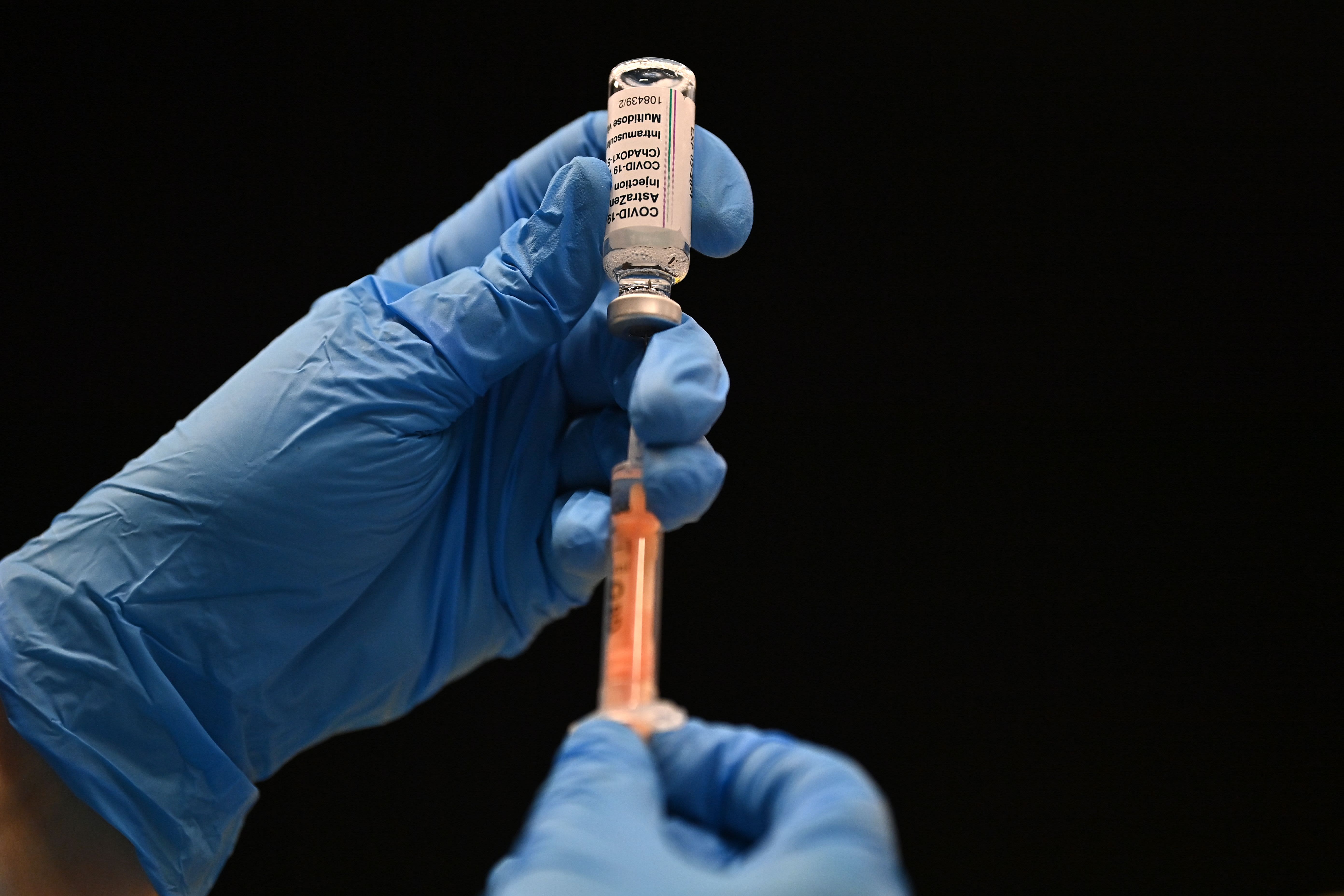AstraZeneca coronavirus vaccine found to be 79% effective in U.S. trial

A healthcare professional draws up a dose of the Oxford/AstraZeneca Covid-19 vaccine at the vaccination centre set up inside Brighton Centre in Brighton, southern England, on January 26, 2021.
Ben Stensall | AFP | Getty Images
LONDON — The findings of a large U.S. trial have shown that the coronavirus vaccine developed by AstraZeneca and the University of Oxford is 79% effective in preventing symptomatic illness and 100% effective against severe disease and hospitalization.
The safety and efficacy analysis of the vaccine, published Monday, was based on 32,449 participants from a Phase 3 trial.
It comes shortly after a flurry of countries temporarily suspended use of the shot following reports of blood clots in some vaccinated people. Health experts sharply criticized the move, citing a lack of data, while analysts expressed concern about the impact on vaccine uptake as the virus continues to spread.
Germany, France, Italy and Spain are among those to have resumed use of the Oxford-AstraZeneca vaccine after Europe’s drug regulator said its initial investigation of possible side effects concluded the shot is both safe and effective.
AstraZeneca said an independent board identified no safety concerns related to the shot. They also conducted a specific review of blood clots as well as cerebral venous sinus thrombosis, an extremely rare blood clot in the brain, with the help of an independent neurologist.
The data safety monitoring board “found no increased risk of thrombosis or events characterised by thrombosis among the 21,583 participants receiving at least one dose of the vaccine. The specific search for CVST found no events in this trial.”
Ann Falsey, professor of medicine at University of Rochester School of Medicine, U.S., and co-lead principal investigator for the trial, said: “This analysis validates the AstraZeneca COVID-19 vaccine as a much-needed additional vaccination option, offering confidence that adults of all ages can benefit from protection against the virus.”




